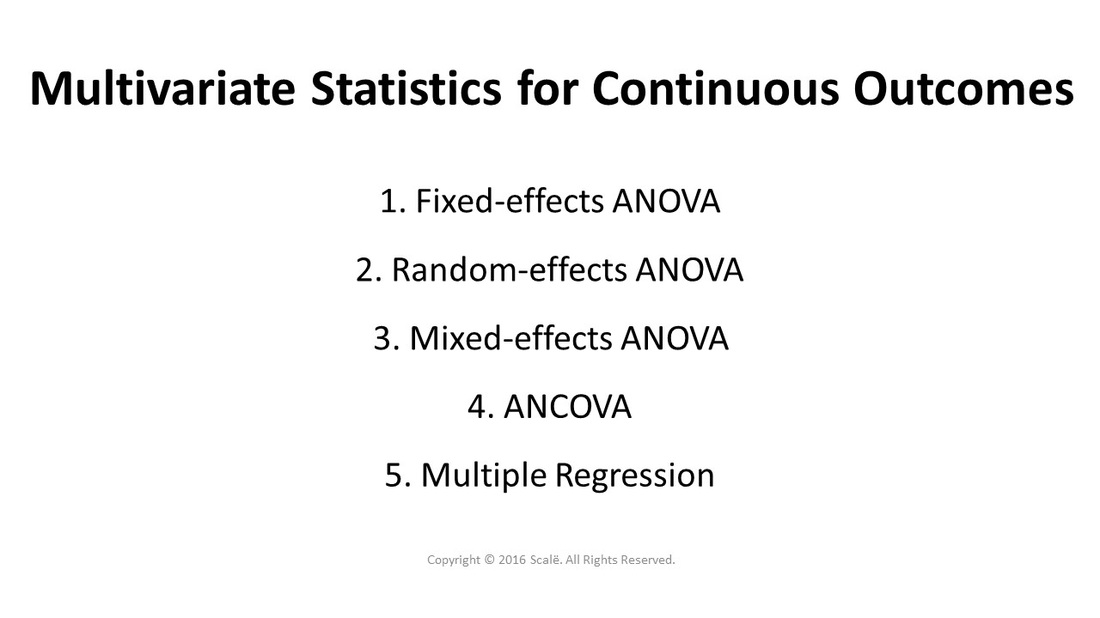Multivariate statistics for continuous outcomes
Test multivariate associations when predicting for different types of continuous outcomes
Multivariate statistics for continuous outcomes are used to adjust for the demographic, clinical, and confounding effects that exist between predictor and continuous outcome variables. The type of multivariate statistic used for a continuous outcome depends upon the nature of the research question and research design. With multivariate statistics, the continuous outcome variable needs to be normally distributed to be used in most of the analyses below. Non-normal distributions that occur naturally are considered count outcomes. Different multivariate statistics are needed for these types of continuous outcomes. Finally, multivariate statistics can be used to test multiple outcomes concurrently so as to decrease experimentwise error rates.
What type of multivariate statistical test will answer your research question?
Researchers are testing how an outcome varies across multiple categorical predictor variables.
Researchers are testing how multiple outcome variables vary across time or within-subjects.
Researchers are testing how different groups change across time.
Researchers are adjusting the value of a continuous outcome across independent levels of a categorical predictor variable.
Researchers are establishing the associations amongst multiple predictor variables and a continuous outcome variable.
Researchers want to account for increased Type I error rates when testing multiple associations and have multiple continuous outcomes of interest.
Researchers want to predict for a count outcome such as with Poisson Regression or Negative Binomial Regression.
Statistician For Hire
DO YOU NEED TO HIRE A STATISTICIAN?
Eric Heidel, Ph.D. will provide statistical consulting for your research study at $100/hour. Secure checkout is available with PayPal, Stripe, Venmo, and Zelle.
- Statistical Analysis
- Sample Size Calculations
- Diagnostic Testing and Epidemiological Calculations
- Psychometrics

